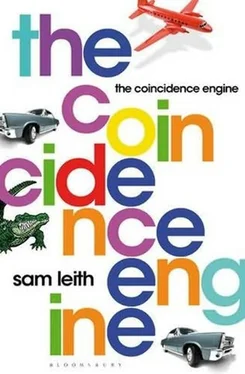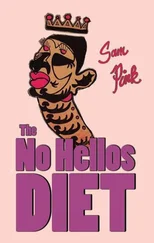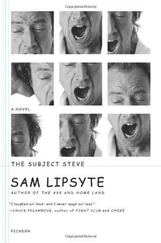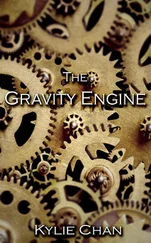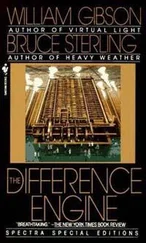You turned round and the pleasant sunshine outside was a wall of white. Reality was oversaturated. It hurt the eyes. Safer in here. The second time you turned round you couldn’t find the opening back to the outside world at all. And now, in the evening, the inside started to colonise the outside. That border was porous, after all. But the unreality inside seeped onto the street like smoke.
A shift in the current and you had turned round, lost your bearings. The direction you struck out in was wrong. The angles were wrong. That wall wasn’t that wall. It wasn’t even a wall at all. That bar was a different bar.
The slots fanned and pulsed. Through alleys of fluorescent coral, portly men in T-shirts lumbered like groupers. Some grazed on the machines, bland-faced and blissful as fish. Old women perched on stools, human spider crabs, barking their yellowed foreclaws on the panels. Cocktail waitresses moved purposefully, dartingly, alertly. Clownfish.
Alex had somehow imagined the sound in the casino would be a cacophony, but it was soothing. He had expected to hear whirring and clattering – and that was there, if you listened for it – but in aggregate it was a sort of anaesthetising white noise, like the sound of the sea.
Over the top, the bleeps and squelches of electronic noise, snatches of tunes, here and there cataracts of imaginary money pouring into imaginary metal containers, digitally simulated. Behind, the purr of a million coins flipping, a million tumblers coming to rest and then starting in motion again, a million balls settling into sockets, a million cards burring into new configurations.
Alex remembered seeing a documentary, once, about a casino in America where women bought buckets of coins and sat, all day and all night, feeding them into the slot machines. There was something devotional about the act: patiently, unsleepingly, as if in a trance, they fed the coins into slots and pressed the button to spin the reels.
With every press of the button, there came a near-imperceptible tensing in the shoulders: a tiny jolt of hope. Then, as the wheels came to rest, came a readjustment. Every few spins, the machine would cough a handful of coins into its trough, and the women would look rejuvenated, freshened: hope satisfied. The coins would be swept back into the bucket, ready to be fed in.
The machines were playing the people, rather than vice versa, it had occurred to Alex. Nearly half the time, the women would have more coins in the bucket than they had started with – but a tilt of the algorithm, the tiniest pressure of a thumb on the scales, meant that the number of coins in the bucket tended, over the long run, towards zero.
Every small score was not a win, but a rebate: a contribution to the struggle, a prolongation of the period of time in which the player was able to believe that the impossible could happen. As they fed these coins in, whittling their chances down the long curve to zero, the same process was going on in every cell in their bodies.
But here there were no buckets, no coins. The clatter of money was synthesised. Just as the blackjack players, on their fields of baize deeper in the casino, exchanged their cash for plastic chips, the slots players now fed dollar bills into machines. You could see them, out of cash, approaching the machines peevishly, feeding ragged cloth bucks into the machines’ mouths, having them whirr and spit back. Rubbing the dollars flat on the top of the machine, straightening out the bent corners, thumbing the face of the dead president, feeding them back in, hoping.
If the casino gods were smiling on them, their money would disappear and stay disappeared, and the machine would politely blurt out a white paper slip. It was this that they would feed into the machine.
Paper money was translated into electrons, which were translated into paper, which was translated into electrons, which were translated into paper, which was translated into electrons, which were translated into paper money.
That made sense. This was a place where money – never something strongly tethered to reality – slipped anchor and became altogether imaginary. And the more imaginary it got, the more like itself it became. This was money in its purest, most contingent form – owned, in the perpetual instant of play, by nobody. It existed in a field of probabilities – between the hope of the impossible and the knowledge of the inevitable.
Alex walked the casino floor. His dizziness subsided and a sort of calm came over him. Seven forty-five. Fifteen minutes to kill. He found the nugget glistering in a glass box. Really quite big – nuggets, as Alex had always thought of them, were no bigger than a Tic Tac. This nugget was supposed to look a bit like a hand, but it looked more like a bit of coral. It looked gaudy. It looked like a fake nugget – as if the gold had been sprayed on from a can.
He had just sat down with a rumpled ten to worship at a nickel slot machine when a hand on his shoulder and a voice hazy with travel said: ‘Hey.’
He turned round and stood up and there was Carey, in the old Dead Kennedys T-shirt she used to sleep in, jeans frayed at the hip, hair down, brown-armed and smiling.
‘Hey,’ said Alex, and felt as happy as he ever had. ‘You’re early.’
‘So are you,’ said Carey. Her arms were warm on his neck as he hugged her.
He pulled back and said more or less without drawing breath: ‘It’s so good to see you. Look! Vegas! I’m playing a slot machine. What’s up? How was your flight? Enough about you, let’s talk about me. My God, I’ve had this weird road trip, I swear, every lunatic in America has tried to kill me or make friends with me. Where’s your stuff?’
Carey lifted her pink vinyl shoulder bag by its strap. ‘Travelled light. Underwear, change of T-shirt, lipstick in case I need to go hooking to earn back what I lose at poker.’
‘Want to go back to my hotel and put it in the room?’
‘Hell no! This is Las Vegas. Let’s hit the town. Waitron! Bring me… a daiquiri.’ There was no waitress anywhere in sight. She waved her arm as if twirling an invisible baton, then shouldered Alex out of the way and slammed the palm of her hand onto the fat SPIN button in the centre of the machine’s console. It quacked and blurted, shuffled its numbers.
‘I win!’ said Carey.
‘No, you don’t,’ said Alex.
‘Oh,’ said Carey. ‘No, I don’t. Does it make that noise when you lose? Imagine the noise when we win. OK. Cash out. Let’s hit the town.’
‘Hang on,’ said Alex. He pressed the button again. The reels moved. There was a simulated cascade of falling coins.
‘Magic hands,’ said Alex, waggling his fingers.
‘We won,’ said Carey. ‘Jackpot!’ Three oranges. They were thirty-five cents up.
‘We won!’ Alex repeated. ‘Go, us. OK, let’s cash out and explore the’ – his hand moved towards the CASH/CREDIT button but Carey swiped it away – ‘town -’
‘Are you crazy? We’re on a streak.’
‘There’s only ten dollars in there…’
‘Shhh.’ She pressed the button again.
An hour and a half later, having never been more than $4.85 up, and having finally gone down to zero, they left to go into town.
Carey and Alex were doing what you do in Las Vegas. They sat at one of the bars in Circus Circus – Carey had demanded that they go in, claiming without a hint of sincerity that she had been frightened of clowns as a child and that it would be good aversion therapy – and played the video poker game embedded in the actual bar. Alex had won $100 on his first go, and Carey had then spent fifteen minutes losing it while they drank their watery screwdrivers.
Then when they got hungry they looked for somewhere to eat and realised that everything was either a cheap chain restaurant or an expensive chain restaurant, so they went to a cheap chain restaurant and had fajitas. The restaurant was dimly lit and noisy with pop-punk music with Mexican lyrics. Teenagers with glow sticks round their necks hip-swayed between tables, taking orders as if they had trains to catch and returning to drop the food off with casual violence.
Читать дальше
